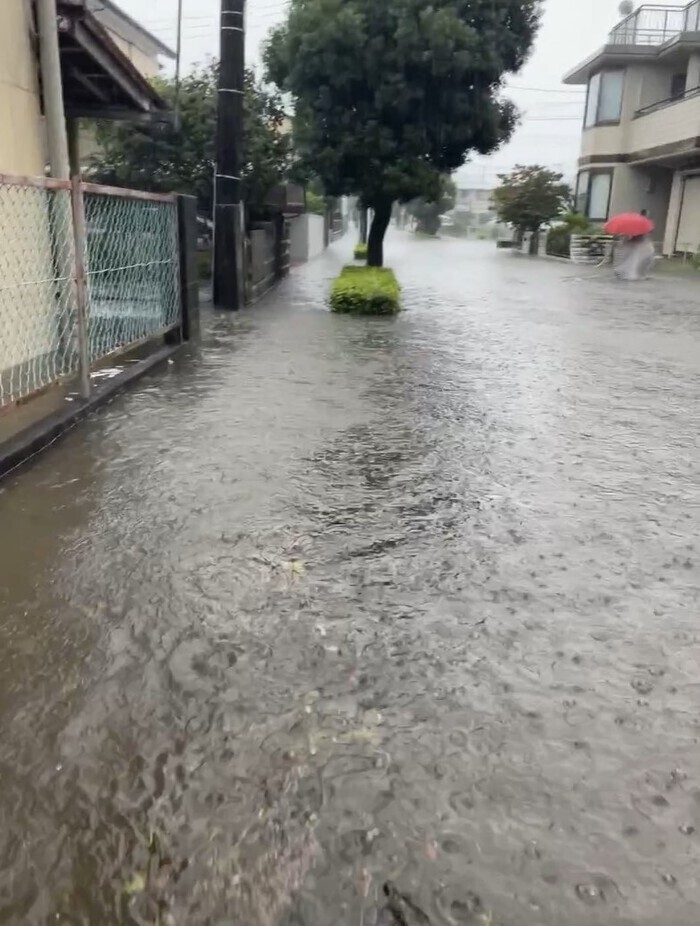What was behind the unexperienced Typhoon in Japan? Report on climate change.
Recent research has shown that the increasing severity of recent typhoons is not just a coincidence.A team from Imperial College London in the UK analyzed Typhoon Shanshan, also known as Typhoon No. 10 in Japan, and issued a warning based on their findings.As long as humans continue to drive global warming, typhoons will keep getting more intense.
They say that the likelihood of super typhoons like Typhoon Shanshan occurring may have increased by more than 20 percent due to climate change.
On September 2, in Makurazaki, Kagoshima Prefecture, southwestern Japan, cars continuously arrived at the waste disposal site following the disaster caused by Typhoon Shanshan. A resident spoke to the camera that "the roof was about half torn off by the typhoon, and had brought disaster debris several times."
In Makurazaki, the strongest maximum wind speed of 51.5 meters per second was recorded during this typhoon. According to the research team in the UK, the maximum wind speed of typhoons may have increased by 7.5 percent due to global warming.
In a press conference held at the Japan Meteorological Agency, Nakamura Hisashi, chair of the Abnormal Weather Analysis Review Committee, said that it is reasonable to consider this year’s heat as part of abnormal weather. This year’s summer temperatures in Japan were 1.76 degrees Celsius higher than the average, making it the hottest summer in over 120 years. Maeda Shuhei, Head of the Climate Information Division of the Japan Meteorological Agency’s Atmospheric and Oceanic Department revealed that there is a possibility that precipitation during heavy rain events has increased due to the effects of global warming.
In August, precipitation on the Pacific side of Eastern Japan was the highest recorded since statistics began.An expert knowledgeable about typhoons point out the following regarding their relationship with global warming.
Sato Masaki, Professor of University of Tokyo mentioned that "The sea surface temperatures around Japan have remained very high, and Typhoon Shanshan passed through such areas. Regions where sea surface temperatures exceed 30 degrees Celsius have extended as far as Japan’s coast. This is a recent trend and is believed to be influenced by global warming". Also, he warns that when people think "oh we were fine with previous ones" that would be wrong from now on. "When refered to “previously,” we were comparing to 10 or 20 years ago, but recent typhoons show that such assumptions no longer hold true. It’s important to prepare and consider evacuation before a typhoon arrives"
Typhoons can be predicted in advance, so he encourages people to use hazard maps and evacuate early. The research team in the UK recently issued a warning to Japan.It said the people of Japan are paying the price for climate change.A climate change expert points out that the effects of global warming extend beyond typhoons.
What are the harmful effects of global warming?
Emori Seita, Professor at Institute for Future Initiative, University of Tokyo mentioned that "Even typhoons of similar strength can bring more rainfall if there is more water vapor, leading to increased precipitation. This is evident in phenomena like the torrential rainstorms we experienced this summer, often referred to as 'guerrilla rainstorms'.'Additionally, the range of tropical diseases, such as dengue fever, is expanding northward due to global warming, increasing the risk".
Is there anything we can do to help stop global warming?The United Nations has outlined 10 actions.
For individuals, they suggest measures such as reducing electricity use at home, walking or using public transportation, minimizing food waster, and choosing environmentally friendly products when shopping.
Emori Seita, Professor at Institute for Future Initiative, University of Tokyo emphasized that It’s important to raise a voice. "Simply talking to those around you, sharing information on social media, or even just liking posts from people who are speaking out can make a difference. I believe it is crucial to express your views in some form". 

